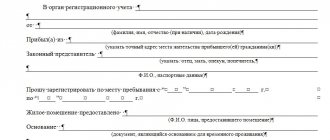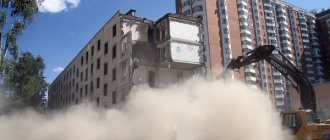Why do you need a house elder?
A house manager in an apartment building is a need that has arisen at the present time due to a number of circumstances.
The work of management companies often raises doubts among the owners of apartments in an apartment building. Payment for services, quality, frequency, and indeed availability as such, which no one controls, benefits only the management company. The owners, being a disparate mass that does not want to unite, are unlikely to be able to objectively control the work of the management company. In this case, a senior person in the house becomes a direct necessity.
Someone should keep documents about the decisions of the meeting, certificates of work performed by contractors, someone should constantly evaluate the quality of work performed by the contractors of the management company, someone should have all the keys to the common premises, someone should organize everyone owners to make any decisions. This “someone” is the eldest in the house .
the house manager for clarification of their rights and expenses incurred. Through senior house owners, owners can communicate with the management company, thereby saving their time and money.
In general, we can say that when an apartment building is managed by a management company, the house manager is a prerequisite for the targeted use of funds collected for general household services.
For what
After all of the above, the question arises - why do people become elders in houses, entrances and even areas? Is there any benefit to this?
And, surprisingly, there are benefits. Most often, the elders in the house get rid of paying some fees, for example, for garbage removal, use of an intercom, concierge services, as well as rent for an apartment, if there is a social rental rather than a simple rental. In most cases, the savings are a maximum of 200–300 rubles per month.
It is clear that this money is nothing compared to the time and nerves spent on all the responsibilities assigned to the person in charge of the house. So they are elected mainly by residents with an active lifestyle, excess energy, and for some reason forced to spend a large amount of time at home. The main reason for this is retirement.
How to choose a house elder. House Elder Election
The Housing Code of the Russian Federation determines that the general meeting of owners of residential premises is the governing body of an apartment building. However, the same Housing Code in paragraph 3.1. The article says that the general meeting can elect a senior person in the house (seniors in the house) and the same meeting determines the conditions of his work.
To select a house elder, this issue must be raised at a general meeting of house owners. An extraordinary general meeting can be initiated by any of the owners of an apartment building, notifying all owners 10 days before the meeting, indicating the agenda of this meeting of housing owners, the time and place of the meeting.
to make a decision on choosing a house elder or a door elder. A quorum when choosing a senior person in the house can be achieved with two-thirds of the votes from all homeowners in an apartment building. The head of the house is elected by a majority vote from the existing quorum.
It is quite difficult to gather two thirds of the owners (namely, the owners (those whose apartments are privatized), and not the tenants under a social tenancy agreement) in a building with more than 50 apartments. Therefore, the initiators need to conduct an absentee vote to select a house elder .
Voting on the issue of choosing a house elder can be organized by drawing up ballots with the wording of the survey and answer options. Here is an example of such a newsletter:
ABSENTEE VOTING BALLOT
owner of premises
in apartment building No. _____ on the street.
______________________ Information about the owner
(representative of the owner)
:
Full name __________________________________passport: gray. _______ No. ____________ issued _____________________________________________, date of issue_____________
Information about the document of ownership:
Document confirming ownership of the premises:
_____________________________________________________________________________
(name of document; series, number, date of issue)
Information about the premises:
apartment No. ______, total area __________ m2.
Owner's share in residential premises: ____________.
Agenda
- Choosing a house elder.
- ***
Premises owner decisions
When voting, you must leave only one of the proposed options.
First question.
Choosing a house elder.
It is proposed to choose a senior person in the house
:
FULL NAME. ______________________________________________________________
for - , against - , abstained - .
Second question * * *
Once completed, the absentee ballot must be sent to:
____________________________________________________________
, until 17 00 hours.
Date of last adoption of the decision of the owner of the premises (end of voting) “____”____________ 2010
/________________/ _________________________________________
The voting results are documented in a protocol.
The decision of the owners of premises in an apartment building, made, including based on voting results, is binding on all owners of the apartment building. All circumstances of voting and decision-making at general meetings can be gleaned from the Housing Code in articles 44-48. It also describes the procedures for the owners of premises to appeal decisions of the general meeting, including on the issue of choosing a house manager .
Roles and responsibilities of a house elder
Before choosing a house manager , it is necessary to determine the conditions of his work, namely the functions that the house manager will perform and the remuneration that the house manager will receive as compensation for the overhead costs associated with his activities and payment the work itself and the time spent. about the salary of a house manager in the next section, but here we'll focus on functions.
The functions of the house manager must cover all explicit and implicit needs that arise when using common house facilities. Let's try to formulate the main responsibilities of the elder in the house .
1. Representation by house elders of the interests of the owners of the house in matters of the use of a residential apartment building and the surrounding area, namely the maintenance, operation, maintenance and ensuring order in the territory related to the apartment building. Representation of these interests in the management company, government authorities, contractors, internal affairs bodies and other organizations.
2. Organizing and holding general meetings on issues the decisions on which are not within the authority of the house elder. Preparation of ballots for absentee voting, their distribution among the owners of premises of an apartment building, collection and processing of ballots and making the appropriate decision in the form of a protocol. Members of the House Council or senior residents of the building may be involved in the work specified in clause 2.
3. The house manager participates in the development of an agreement with the management company, making changes according to the specifics of the apartment building.
4. The house manager participates in drawing up and approving estimates of necessary repairs in the house and in the local area and supervises the implementation of these works.
5. The house manager participates in commissions for the acceptance of all types of work on the maintenance, operation and repair of the house, including the acceptance of work to prepare the house for seasonal operation, improvement of the local area with the right to sign the work acceptance certificate.
6. The house manager, together with the management organization, approves the price list of additional services for residents of the house and the cost of component materials.
7. The house manager, together with a representative of the management organization, participates in taking readings from common house meters on a monthly basis and records them in the appropriate journal.
8. The house manager monitors the technical condition of the apartment building, promptly informs the management organization about the necessary repairs, agrees on the deadline for completion and demands their completion within the prescribed period.
9. The house manager annually creates a list of necessary work on the entrusted territory that will need to be carried out over the next year and submits it to the management company.
10. The house manager makes minor repairs in the common areas of the apartment building and the local area, purchases the necessary components and consumables.
11. The head of the house establishes interaction with internal affairs bodies in order to ensure public order.
12. The head of the house controls the amount of fees for housing and communal services and the reasonableness of their expenses.
13. The head of the house organizes “subbotniks” to improve and carry out necessary work in the local area.
14. The house manager explains to residents their rights and responsibilities for the maintenance and operation of residential and non-residential premises, common areas, and also provides the addresses of operating organizations where residents can contact in case of emergencies, emergencies and other situations.
15. The house manager keeps minutes of meetings and other documents related to the management of an apartment building and takes all measures to prevent their damage or loss. Upon resignation, the above documents are transferred to the newly appointed senior housekeeper.
16. The house manager keeps the keys to the locked common areas of the apartment building.
17. The head of the house is obliged to report to the residents for funds collected for general house needs at least once a year and at the request of any of the owners of the premises in an apartment building.
The functional responsibilities of the house elder may be specified in the Charter of the apartment building or in another document approved by the meeting of owners of premises in the apartment building.
Holy people
As it turns out, the boss at the entrance is by no means an annoying old lady who is always trying to turn you over to the local police officer. She is practically a saint for the entire entrance. At least he or she should be, if you look at the responsibilities.
Responsibilities, by the way, may vary from city to city, because in the Housing Code of the Russian Federation such a concept as the chief of an entrance or house is not fixed, and the rights and responsibilities for this position are established by each municipal body separately. But in any case, there is a list of responsibilities of building managers who will one way or another be present in any city in any region.
First of all, the senior people at the entrance are an excellent supervisory body that must tirelessly and zealously monitor how conscientiously the services for cleaning courtyards, entrances and other adjacent areas work. Also, building managers are required to monitor the progress of repair work carried out by housing and communal services - from minor painting of the entrance door to control of major repairs of the building. In case of poor-quality performance of any work, the senior staff at the entrance must file a complaint with the supervisory authority, demanding that the dishonest work be remade and such mistakes not be made in the future.
In addition, the “seniors” serve as a link between the management company and the residents of the house. In this case, almost everyone wins. Residents are freed from the unpleasant procedure of knocking on the thresholds of government-owned establishments, and management companies conduct a dialogue with one single representative instead of hundreds of angry apartment owners dissatisfied with the color of the painted walls. The loser is only the building manager, who must reach out to the leadership of the housing office and explain to the rest of the residents the solutions and problems of this very housing office, so that they understand everything.
Also, “elders” should make proposals for improving the house and surrounding areas, seek these improvements from management companies, insist on the need for repairs, reconstructions, updates, say, a playground, elevators, entrances and everything else. They must organize general meetings of residents, keep and store minutes of these meetings, as well as all keys to all utility and technical premises located on the territory entrusted to them. In general, it won't be a hassle.
Dear "communal service". Will housing and communal services tariffs be frozen or increased?
More details
How to organize payment for your elder's housework
So, the residents realized the need for a house manager , agreed to pay him, a volunteer was found for this post and he was approved, all that was left was to start working and get paid for it. However, getting money is not so easy, even if everyone is willing to pay it.
Of course, the person in charge of the house can go to all the apartments every month with an outstretched hand and ask to pay for his services, but most likely, after a couple of months, the person in charge of the house, who is tired of knocking on thresholds in an apartment building, will abdicate his authority by organizing an extraordinary meeting.
Today, the housemaster can receive remuneration for his work through the management company by including such an expense item in the general account and the management company’s obligation to enter into an agreement with the housekeeper. This is perhaps the only method available to a house with a small number of apartments. How to do it.
By decision of the meeting of owners of premises in an apartment building, oblige the management company to include the line “ Payment for the services of a house elder ” in the general list of housing and communal services, indicating the amount of accruals and the rules of accrual (per square meter, per resident, etc.), and also oblige the manager the company enter into an agreement with the house elder.
This is where the problems begin.
According to our legislation, namely the Labor Code of the Russian Federation, it is not possible to conclude an agreement for the provision of services by an individual (which is the senior person in the house) to a legal entity (which is the management company as the first recipient of funds) for a period of more than three months. Accordingly, an employment contract is required on the permanent place of work of the housekeeper in the management company with the calculation of his salary from the fund replenished under the line “Payment for the services of the housekeeper.”
Let us note that every citizen who performs any work for money is required to pay income tax on the entire amount received in the amount of 13%. Typically, this tax is paid for the employee by his employer, withholding the required amount from his salary.
In addition, the employer is obliged to pay insurance premiums for its employee to the Compulsory Medical Insurance Fund and the Pension Fund of the Russian Federation in the amount of 26% of the accrued salary.
If the management company operates under the full taxation scheme, and most likely this is the case, it needs to pay VAT on the difference between income and expenses (subject to VAT). Because wages are expenses not subject to VAT, the entire amount falls into the difference with which the company pays 18% value added tax. Of course, we are not accountants, and one can argue with the wording of these thoughts, but, whatever one may say, the management company, as a rational agent, will certainly ask to cover this difference from the fund for paying for the services of a senior housekeeper.
In total, when hired (even conditionally) by a senior housekeeper in a management company, the senior housekeeper will receive about half of all fees for these services. Let us explain: all (!!! which is practically unattainable!!!) residents of a 100-apartment building chipped in 50 rubles for the salary of the house manager. In total, 5,000 rubles were accumulated in the account. These 5,000 rubles should include taxes on the payroll (payroll fund), personal income tax, VAT compensation, and the “net” of the house elder. Plus, you need to understand that the collection of funds by management companies is organized through commercial payment acceptance points, which take their percentage. Plus, the management company is unlikely to be happy to settle settlements with the elder at its own expense and will require a small percentage of this amount to compensate for these expenses.
In total, having dropped only 5,000 rubles, the person in charge of the house will receive the maximum 2,500 rubles.
We invite you to discuss these findings in the comments to this article.
The second option (not suitable for everyone) is to register the person in charge of the house as an individual entrepreneur, and on behalf of the entrepreneur, enter into an agreement with the management company. The costs in this case are as follows (if the entrepreneur uses a simplified taxation scheme): Transit of the collector - 1%, transit through the management account - 1%, tax on income received - 6%, cash withdrawal 1-2% depending on the bank, servicing the account in bank - from 300 rubles per month, entrepreneur taxes - about 1300 rubles per month.
This option is cheaper, especially if the senior person in the house is already registered as an individual entrepreneur, and he already provides some services and pays his own taxes. Then the losses from the general fund under the item “elder's housework services” will not exceed 10%. Those. having ultimately chipped in 5,000 rubles, the person in charge of the house will receive 4,500 rubles in cash, which is clearly better than employment in a management company.
So, we have found out that the principle of calculating payment for the services of a house elder should be considered first and the collected funds should be calculated based on the total amount that the house elder will receive.
The following topics are being prepared to be added to this article: Additional responsibilities of the housemaster, Agreement of the housemaster with the management company, How to oblige the management company to enter into an agreement with the housemaster.








